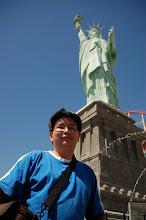Jakarta today could be any of Asia's 21st-century boomtowns. The malls buzz, traffic snarls and modern office towers dominate the skyline. It all feels profoundly normal—but that's big progress in a place that, barely ten years ago, seemed destined for ruin. Following the fall of longtime strongman Suharto, and with Indonesia reeling from the 1997-98 Asian financial crisis, many analysts feared that Asia's third-biggest country (population: 235 million) would go the way of Yugoslavia. Instead, it has become a cohesive, robust and exuberantly democratic moderate Muslim nation. Things are so buoyant that Indonesia invites comparison to another Asian giant: India.
Both remain corrupt, chaotic and excruciatingly complex. Yet each is also an attractive emerging economy, and in India's case, a star of the developing world. Could Indonesia be next? Its economy grew by 6.3 percent last year, the main stock exchange ranks among the world's best performers since 2003 and last year foreign direct investment nearly tripled, to a respectable $4 billion. All of which resembles India in the 1990s, when reforms kick-started a potentially massive economy—though outsiders barely noticed until the IT sector took off and growth passed 8 percent. In Indonesia, the key sectors are energy, mining and soft commodities like rubber, palm oil and cocoa. And in an exclusive interview, President Susilo Bambang Yudhoyono says he sees no inherent reason why a big democracy like his can't grow as fast China, which has posted 10 percent growth rates in recent years.
That would put Indonesia on a lot of magazine covers. In fact, the country already looks better than India in two ways: its per capita income ($3,348) is a third higher, and thanks to Jakarta's fiscal austerity, it now boasts one of the lowest debt ratios in the world. "After ten years of restructuring, Southeast Asia's largest economy is in great shape," says Nicholas Cashmore, CLSA's country head and chief researcher in Jakarta.
Indonesia's political turnaround has been just as dramatic as its economic one. The president, known universally as SBY, is a former general who was elected in mid-2004 and has since become the country's most effective democratic leader. In four years, he has helped Indonesia roll up its terrorist problem and rebuild from the 2004 tsunami. Less appreciated (but more enduring), he has backed a profound political decentralization program, empowering hundreds of local administrations. Jakarta now rules by consensus, not decree. This has its downsides: it makes it impossible to railroad through big national development projects of the sort China is famous for. As SBY himself admits, "in many circumstances, we face local communities that don't agree with government projects, so we have to convince them. I do not think the system is wrong. In a democracy like ours, change, reform and resistance are normal."
The country's largest parties now basically agree on economic policy and the need to reduce corruption, improve the rule of law and make government more efficient. Key democratic institutions—including a free press, impartial courts and a legislature chosen by voters—are remarkably robust, and the once all-powerful military has largely removed itself from politics. Meanwhile, regional autonomy has triggered economic booms at the periphery, in contrast to the typical Southeast Asian model. "From the U.S., the U.K. or even Hong Kong," writes Cashmore, "it is difficult to comprehend the magnitude of Indonesia's potential [or] appreciate just how much more there is to the country beyond Jakarta." By his calculation, greater Jakarta now accounts for just 15 percent of Indonesia's GDP, a relatively small share compared to other Asian capitals.
Indonesia's accomplishments are all the more impressive when you remember how far and fast the country has come. The fall of Suharto's New Order (a highly centralized system that vested absolute power in the dictator and his cronies) 10 years ago was accompanied by a financial meltdown so severe that the IMF had to step in. Indonesia also faced fierce separatist insurgencies, Christian-Muslim violence and Islamic extremism underscored by the 2002 Bali bombing. The country seemed to be teetering on the brink of wholesale disintegration. Yet today, as Australian National University economist Andrew MacIntyre and the Asia Foundation's Douglas Ramage argued in a recent report, observers should start thinking of Indonesia "as a normal country grappling with challenges common to other large, middle-income, developing democracies—not unlike India, Mexico or Brazil."
In some ways Indonesia's democracy is even more sophisticated than those other states'. Take decentralization. Jakarta, like New Delhi, oversees national defense, internal security, finance, foreign policy and the justice system. But unlike the Indian government, Indonesia's—thanks to two "big bang" reform packages passed in 2001 and 2006, and supported by SBY—must now coordinate most other activities through the country's 33 provinces and nearly 500 local administrations, where popularly elected leaders make policy, manage two thirds of all civil servants and oversee everything from schools to economic development. As World Bank economists Wolfgang Fengler and Bert Hofman observe in a soon-to-be-published study, Indonesia has turned itself from "one of the most centralized countries in the world into one of the more decentralized ones."
To see what that means on the ground, follow the money. Under a new fiscal system implemented in 2001, regions are allocated a huge slice of the country's budget to spend more or less as they please. Poor and remote areas receive the most per capita, and those with abundant natural resources get shared extraction revenues. According to the World Bank, regional governments in Indonesia now account for 36 percent of all public expenditures, compared with an average of just 14 percent in all developing countries. And locals can promote whatever agendas they choose. "This is the real revolution," says Erman Rahman, who heads the World Bank's local governance initiatives in the country. Regions with proactive leaders have become laboratories of experimentation from which innovative anti-corruption, public-health and economic-growth initiatives have emerged. For his part, SBY has enabled this process by maintaining macroeconomic discipline and political stability. And his support for local autonomy has undermined separatism, extremism and communal violence.
One regional pioneer, Gamawan Fauzi, took power in West Sumatra's Solok region in 2001 and quickly created a one-stop shop for government services, replacing an opaque and complex web of offices and brokers. Fauzi's concept was to bring all government services under a single roof, post set fees, promote autopayment and guarantee prompt service as a means of rooting out corruption. And it has worked: the model has since been emulated across Indonesia, and Transparency International reports that corruption, while still high, has been reduced substantially.
Other local leaders have earned fame by initiating innovative new programs. Gede Putrayasa, who heads the poorest of nine regencies on the tourist island Bali, won office in 2001 on a pledge to provide universal medical insurance and free education. The latter proved relatively easy (he simply waived the 5,000 rupiah monthly fees), but improving health care without breaking the local budget was tougher. Under the old system, funds went to hospitals and local administrators, who did things like stockpile pharmaceuticals procured from companies that paid kickbacks. Putrayasa's innovation: provide every local household free health insurance that compensates clinics for services actually provided. "There's not a big savings," says Putrayasa, "but everyone is covered and the efficiency is much better because there is no longer any corruption."
Such reforms have stimulated economic growth. Putrayasa's health-care and education initiatives (as well as a jobs program that sends underemployed rice farmers to Japan) have reduced the local poverty rate fourfold to just 5.5 percent today. Better local governance has also made Indonesia a major beneficiary of the global soft commodity boom. Together, the value of its four largest crops—rubber, coconut, palm oil and cocoa—rose from $2.3 billion in 2000 to an estimated $19 billion in 2008, CLSA calculates. That's thanks to local leaders like Fadel Muhammad, governor of the hardscrabble province of Gorontalo on the island Sulawesi, who turned his constituents into the country's best corn farmers by deploying teams of agricultural consultants; providing subsidized seeds, fertilizers and rental machinery to farmers; and giving cash rewards to village leaders who boost yields. Since 2002, Gorontalo's poverty rate has shrunk from 49 to 29 percent.
Of course, decentralization has its problems. Analysts and watchdog groups say that while the number of effective leaders in the 500 local administrations has spiked from a handful to 50 or more under SBY, they are sometimes particularly effective at blocking necessary national reforms and projects. The result, says Ramage, is that progress will be "evolutionary, not revolutionary." For example, the Trans Java highway, which would link Jakarta with Indonesia's second-largest city, Surabaya, was launched in 2004 with a target completion date of 2009, but is still only 10 percent done because of local opposition.
Nonetheless, Indonesia has already become a beacon of stability in Southeast Asia and the Islamic world. Its antiterrorism campaign—Indonesia has shut radical madrassas, established an effective counterterrorism force and cracked down hard on suspected cells, while also avoiding human-rights abuses—is seen as a model for the region. And as the world's most populous Muslim country, Indonesia's democratization has implications from Morocco to Mindanao in that it exemplifies an alternative to zealotry, intolerance and extremism. "Indonesia is not immune to radicalism we see worldwide, but this is exactly why we must maintain our identity as a moderate, tolerant nation," says Yudhoyono. "It enables us to prevent a clash of civilizations."
SBY is likely to win re-election next year, but even if he loses, analysts don't expect any sharp change in policy, because all the major political camps in Jakarta agree on the current reform blueprint. Even India does not enjoy that kind of stable consensus on how to catch China.
With Greg Hunt in Hong Kong
























































